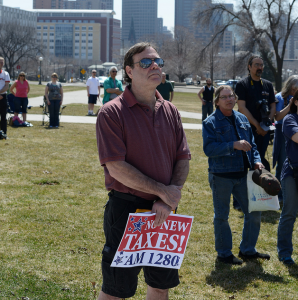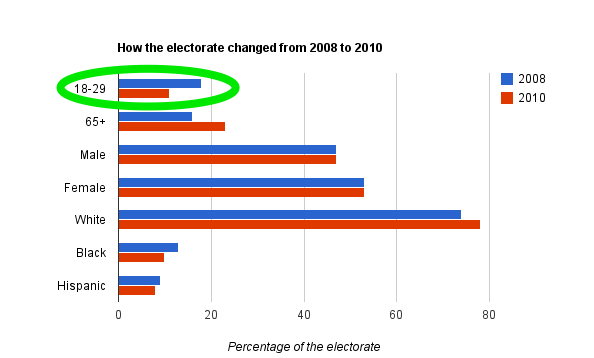That stale breeze you detect when driving down John Ireland Boulevard this morning is a result of taut DFL legislators exhaling en masse as they cuddle up with today’s Star Tribune Minnesota Poll finding that 58% of Minnesotans support their $2 billion tax increase on top wage earners, while 64% support their $1.60 per pack cigarette tax increase.
“Some New Taxes” Beats “No New Taxes”
 Republicans and their well-funded special interest backers have spent decades aggressively pushing “no new taxes” messaging to Minnesotans, almost to the exclusion of all other economic issues. This survey shows that Minnesotans just aren’t buying it. It shows that “some new taxes” is a message that sells pretty well with Minnesotans. It also shows that DFLers, after flirting with scores of potential tax increases during the 2013 session, finally settled on two politically palatable taxes. So, there’s a lot of good news for DFLers in these findings.
Republicans and their well-funded special interest backers have spent decades aggressively pushing “no new taxes” messaging to Minnesotans, almost to the exclusion of all other economic issues. This survey shows that Minnesotans just aren’t buying it. It shows that “some new taxes” is a message that sells pretty well with Minnesotans. It also shows that DFLers, after flirting with scores of potential tax increases during the 2013 session, finally settled on two politically palatable taxes. So, there’s a lot of good news for DFLers in these findings.
Still, if I were a DFL legislative or gubernatorial candidate in 2014, these are two things I’d be most worried about in the short-term.
False Perception That Many Additional Tax Increases Passed
First, I’d be worried that the electorate may still be under the impression that the DFL passed every tax increase it debated during the 2013 session. While the survey shows that the electorate supports the tobacco tax and tax on the wealthy, other surveys show that Minnesotans do not support many of the other taxes that the DFL pondered and, unbeknownst to many casually aware voters, ultimately rejected. Perception is reality in politics, and if Minnesota swing voters perceive, with an assist from the GOP, that the DFL enacted lots of unpopular tax increases, that perception could sink many a politically frail freshman DFLer in 2014.
Young Tax and Gay Backers Sit Out 2014?
The second thing DFLers should worry about in 2014 is this: The most enthusiastic supporters of these two tax increases are 18-34 year olds, and those younger voters may not be present in sufficient numbers to save DFLers from more conservative older Minnesotans in the 2014 mid-term elections.
The Washington Post analyst Ezra Klein is among those who reviewed exit polling in the 2010 mid-term elections, and found that Democrats lost because the age of those who turned out skewed old:
…the basic answer is that Republican groups came out to vote and Democratic groups didn’t. The exit polls tell the story:
The gender breakdown didn’t change much. And nor did the racial breakdown. But the age of the electorate changed dramatically: Seniors went from 16 percent in 2008 to 23 percent in 2010, while voters between 18 and 29 fell from 18 percent in 2008 to 11 percent in 2009. Seniors, of course, are the most conservative voters — they were the only age group to back John McCain in 2008. And young voters are the most liberal.
Keep those numbers in mind when looking at the age cross-tabulations in the Minnesota Poll questions about taxes. Two-thirds (67% support) of 18-34 year old Minnesotans support the DFL-enacted tax increase on the wealthy, which is 16-points higher than 50-64 year olds (51% support). Similarly, 72% of 18-34 year olds support the DFL-enacted tobacco tax increase, which is significantly stronger than the support level among 50-64 year olds (63% support) and those 65-years old and older (62% support).
So, hurray for the DFL, Young adults disproportionately support the DFL-enacted tax increases. That’s important for the long-term health of the DFL party, and should be concerning to a Republican party that has bet the farm on the long-term appeal of their “no new taxes” mantra.
BUT if young people stay home in the 2014 mid-term elections the way they did in the 2010 mid-term elections, a distinct possibility, the DFL’s tax increases may not be so popular with the older electorate that actually shows up at the polls in mid-term elections. This generation gap is even wider when it comes to the legalization of gay marriage, one of the most memorable accomplishments of the DFLers in 2013.
Gray Derecho On The Horizon?
Taxes and gay marriage are likely to be dominant issues in the 2014 mid-term legislative and gubernatorial elections. And if I may offer the understatement of the decade, Governor Dayton lacks the charismatic draw for young adults that Barack Obama supplied in 2008 and 2012. Therefore, the Minnesota DFL desperately needs to find a new way to rock the young adult vote in 2014, or a distinctly gray derecho may blow many of them out of the State Capitol Building.
– Loveland

